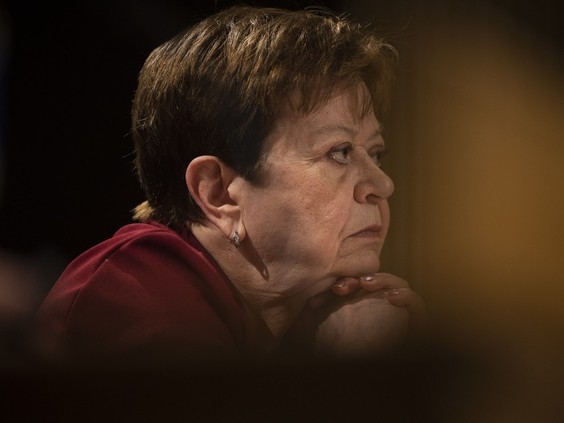
“What happened in the fourth quarter, largely, was the unexpected increase in the corporate income tax.”
Alec Salloum, Regina Leader-Post
Down from initial projections of $1 billion, Saskatchewan’s actual 2023-24 budget for the fiscal year yielded a surplus of $182 million.
“I would love the one billion to be sure,” outgoing Minister of Finance Donna Harpauer said Thursday morning. “It’s not a large surplus of course.”
During a mid-year financial update in November 2023, the province was anticipating a $250-million deficit on account of higher expenses related to summer drought and lower-than-anticipated resource revenues.
Harpauer credited the surplus, announced Thursday, to a significant increase in revenue from “all sources except for federal transfers.”
For 2023-24, total expenses came in at $20.81 billion, which is an increase of $2.15 billion (or 11.5 per cent) from projections in March 2023 when Harpauer presented that budget with a $1-billion surplus projected.
Revenue came in at $20.99 billion, which was up $1.32 billion (6.7 per cent).
The increase in expenses was attributed in part to drought conditions persisting through the summer, which resulted in higher premiums paid out in crop insurance. There was also a rise in health expenses, which were higher due to increased usage and surgeries, including those conducted out of province.
“It’s all taxes and fees,” said Opposition finance critic Trent Wotherspoon in an emailed statement. “Scott Moe is trying to balance the budget before an election on the backs of Saskatchewan taxpayers. It’s coming out of your pocket.”
Part of what helped get the province back into the black for 2023-24 was output-based performance standards (OBPS), which brought in $458,916,000.
Max Hendricks, deputy minister of finance, said the province “actually received five quarters” worth of payments for which it had not budgeted.
“We weren’t sure when we would get it so it was a more significant amount,” he said.
Without that money from OBPS, the province would have posted a deficit, said Harpauer.
OBPS is a provincially collected carbon pricing regime applied to industrial emitters. As previously stated by Premier Moe, “it is a carbon tax” — one that exists in place of a federal carbon tax.
From that $459 million via OBPS, half will be available for tech fund grants to companies that contributed while the other half will be “retained in government,” said Harpauer. The amount posted represents the full amount collected, with Hendricks anticipating lower OBPS collections in the future.
Still, the minister said the largest unexpected source of revenue was corporate income tax. In part, that’s due to a two-year delay on how the Canada Revenue Agency processes corporate income tax, said Harpauer.
Specifically, she said this surge is a result of spiking global potash prices from 2022 after Russia’s invasion of Ukraine.
“We’re realizing the corporate income tax from that huge spike in profitability in the last two years,” said Harpauer. “What happened in the fourth quarter, largely, was the unexpected increase in the corporate income tax.”
In terms of oil and potash, Harpauer said the fourth-quarter resource revenue increased “about $55 million, which is not a large portion of our resource revenue.”
The Opposition pointed out “potash revenues are down $1.6 billion and oil and gas revenues are down $148 million from last year.”
